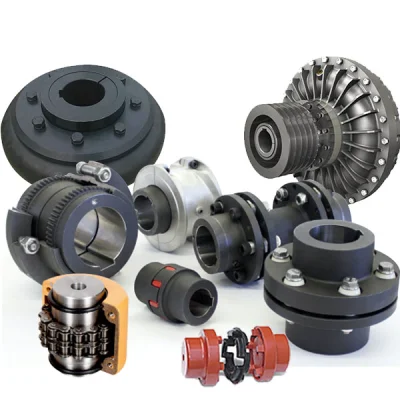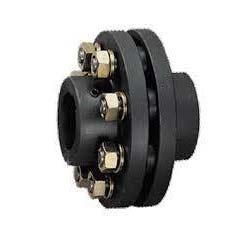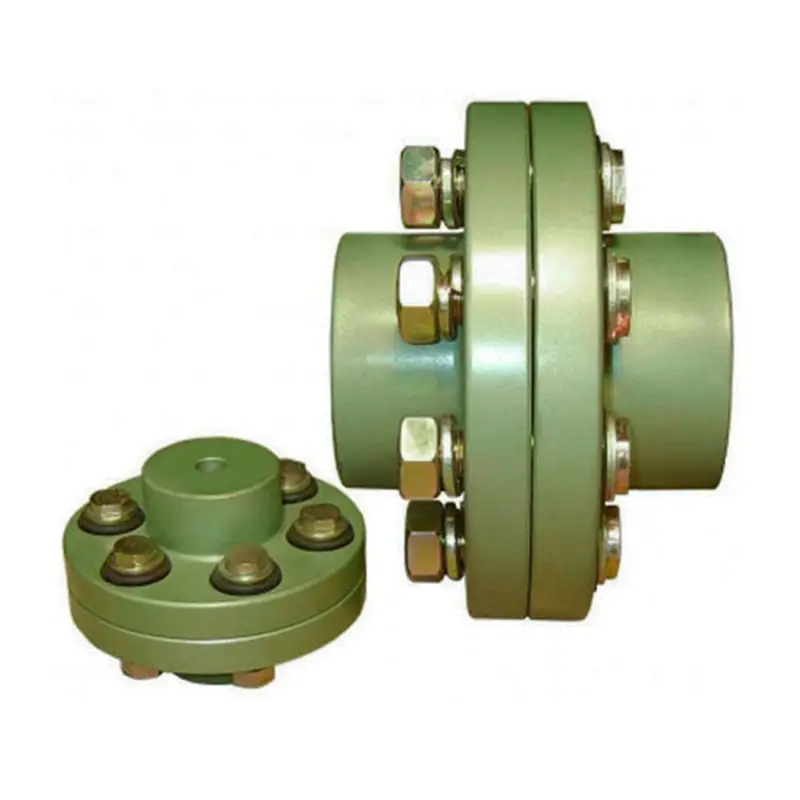Product Description
HangZhou HangZhou Machinery specialized in supply with varieties of metal parts from the process of sand casting, precision casting, forging and machining, which consists of valve parts, pump parts, laboratory equipment parts, electrical appliance parts, auto parts, rail parts, marine parts, construction equipment parts, drainage parts, mining parts and any customized shaped parts according to the specific technical drawings or samples.
We own automatic production lines for sand castings (iron castings), the advanced technology and the top grade detect equipment to guarantee high degree of accuracy and stable quality, so that we could satisfy various aspects of special requirements on size, pressure, hardness, surface roughness and so on..
| Product | Customized Cast Iron Pump Impeller Flange Coupling |
| Processing | Investment casting, Sand Casting, Machining |
| Available Material | cast iron, stainless steel, copper, aluminum alloy etc. |
| More Processing | CNC Machining,Plastic Injection,Stamping,Die Casting,Welding,Forging, Mould Making,etc |
| Surface Finish | Powder Coating, Anodizing, Polishing, Electric-plating, Pvd Coating, Hot Dip Galvanizing, E-coating, Tin Plating, Nickel Plating, Chrome Plating, Dacromet, Enamel Coating etc. |
| OEM | Available |
| Application | All kinds of cars,valve, pump, machinery,home appliance,electronic products,electric appliance,construction,computers,power switches,miniature switcher,architecture,hardware and plastic molds,sports equipment and gifts,and more. |
| Manufacturing Type | Precision Machining, CNC Milling, CNC Lathe Turning, Tapping, Drilling, Grinding, Stamping, Deep Drawing, CNC Punching, Laser Cutting, CNC Bending, Die Casting, Welding etc |
| Industries Served | Aerospace, Automotive, Agriculture, Construction, Electrical, Electronic, Home Appliance, Medical,Marine, Machinery, Furniture, Food, Lighting,Telecommunication etc |
| File Format | Solidworks,Pro/Engineer,Auto CAD,PDF,JPG,DXF,IGS,STEP |
| QC | 100% Strict Inspection For Every Processing |
| One-stop Service | Custom Design, Fabrication, Assembly And Delivery |
Equipments capability display:
More details about our service:
Professional packing,customers factory inspection, and more products galary:
Customized Cast Iron Pump Impeller Flange Coupling is 1 of our key products from our production line.
Material could be from ductile iron or grey iron, here we would like to tell more about the materials:
Ductile Iron Casting Material Comparison Table:
| Cast iron with nomular graphite DIN EN 1563 |
Germany DIN 1693 |
France NF |
Great Britain BS |
USA ASTM A536 |
|
| EN-GJS-350-22-LT | GGG-35.3 | FGS 370-17 | 370/17 | —- | |
| EN-GJS-400-18-LT | GGG-40.3 | —- | —- | 60-40-18 | |
| EN-GJS-400-15 | GGG-40 | FGS-400-12 | 420/12 | 60-40-18 | |
| EN-GJS-400-10 | —- | —- | 420/12 | 65-45-12 | |
| EN-GJS-500-7 | GGG-50 | FGS-500-7 | 500/7 | 65-45-12/ 80-55-06 |
|
| EN-GJS-600-3 | GGG-60 | FGS-600-3 | 600/3 | 80-55-06 | |
| EN-GJS-700-2 | GGG-70 | FGS-700-2 | 700/2 | 100-70-03 | |
| EN-GJS-800-2 | GGG-80 | FGS-800-2 | 800/2 | 120-90-02 | |
| EN-GJS-1000-5 (DIN EN 1564) | GGG-100B/A | —- | —- | 850-550-10 | |
| EN-GJS-AX NiSiCr35 5 2 | GGG- NiSiCr 35 5 2 |
FGS- Ni35Si5Cr2 |
S5S | Type D-5S | |
Grey Iron Casting Material Comparison Table:
| Cast iron with lamellar graphite DIN EN 1561 |
Germany DIN 1691 |
France NF |
Great Britain BS |
USA ASTM A48 |
| EN-GJL-150 | GG-15 | Ft 15 D | Grade 150 | 20 B / 25 B |
| EN-GJL-200 | GG-20 | Ft 20 D | Grade 180/220 | 25 B / 30 B |
| EN-GJL-250 | GG-25 | Ft 25 D | Grade 220/260 | 35 B / 40 B |
| EN-GJL-300 | GG 30 | Ft 30 D | Grade 300 | 40B / 45 B |
FAQ
1. Are you a manufacturer or a trading company?
We are a professional manufacturer with over 20 years’ experience for designing and producing casting parts and machining parts.
2. How can I get some samples?
If you need, we are glad to offer you samples for free, but the new clients are expected to pay the mould coast and courier cost.
3. Can you make casting according to our drawing?
Yes, we can make casting according to your drawing, 2D drawing, or 3D cad model, both available. If the 3D cad model can be supplied, the development of the tooling can be more efficient. But if without 3D, based on 2D drawing we can still make the samples properly approved.
4. Can you make casting based on our samples?
Yes, we can make measurement based on your samples to make drawings for tooling making.
5. What’s your quality control device in house?
We have spectrometer in house to monitor the chemical property, tensile test machine to control the mechanical property and UT Sonic as NDT checking method to control the casting detect under the surface of cast.
For more information, please feel free to contact us!

Impact of Flange Coupling on the Overall Reliability of Connected Equipment
A flange coupling plays a crucial role in ensuring the overall reliability and performance of connected equipment in a mechanical system. Its impact can be summarized as follows:
- 1. Power Transmission Efficiency: Flange couplings provide a secure and rigid connection between shafts, enabling efficient power transmission from one component to another. By minimizing energy losses through slippage or vibration, flange couplings help maintain the overall efficiency of the system.
- 2. Reducing Wear and Tear: Flange couplings accommodate misalignment and slight axial movement, reducing stress on connected equipment. By absorbing shocks and vibrations, they protect the components from excessive wear and fatigue, increasing their lifespan.
- 3. Controlling Vibration and Noise: A properly selected and installed flange coupling helps dampen vibrations and reduces noise levels in the system. This is particularly important in precision machinery, where vibrations can affect the accuracy and performance of the equipment.
- 4. Handling Misalignment: Flange couplings can compensate for angular, parallel, and axial misalignment between shafts. This capability ensures smooth operation and prevents excessive forces that could lead to premature failure of equipment components.
- 5. Improving System Flexibility: Flange couplings offer flexibility in design and installation. They allow for quick and easy disconnection and reconnection of equipment for maintenance or repairs, minimizing downtime and increasing the system’s overall availability.
- 6. Protection Against Overloads: In high-torque applications, flange couplings provide a safeguard against overloads by slipping or disengaging when the torque exceeds the coupling’s capacity. This helps prevent damage to the equipment and ensures the safety of the system and operators.
- 7. Corrosion Resistance: Depending on the material selected, flange couplings can offer excellent corrosion resistance, making them suitable for use in harsh environments or corrosive conditions. This protects the connected equipment from premature deterioration.
- 8. Maintenance and Downtime Reduction: The reliability of flange couplings leads to reduced maintenance needs and less frequent downtime. A well-maintained coupling can significantly extend the life of connected equipment and reduce the frequency of replacements or repairs.
- 9. Enhancing System Safety: Flange couplings provide a secure connection that ensures the safe operation of rotating machinery. They minimize the risk of unexpected equipment failure or disconnection, promoting the safety of operators and surrounding personnel.
- 10. Adaptability to Different Industries: Flange couplings are widely used across various industries, from manufacturing and power generation to mining and aerospace. Their versatility and reliability make them suitable for a wide range of applications, contributing to the overall success and efficiency of these industries.
In conclusion, the proper selection and use of flange couplings significantly impact the overall reliability and performance of connected equipment. Their ability to transmit power efficiently, handle misalignment, and protect against wear and overloads ensures smooth and safe operation, reducing maintenance costs, and increasing the lifespan of machinery.

How Does a Flange Coupling Contribute to the Longevity of Connected Equipment?
A flange coupling plays a crucial role in enhancing the longevity of connected equipment by providing several key benefits:
- Shock and Vibration Damping: Flange couplings, especially flexible types, are designed to absorb and dampen shock loads and vibrations that may occur during the operation of rotating machinery. By reducing the impact of these forces on the connected equipment, the coupling helps prevent premature wear and fatigue, thus extending the lifespan of the equipment.
- Misalignment Compensation: In many industrial applications, shaft misalignment is unavoidable due to various factors like thermal expansion, foundation settling, and equipment repositioning. Flange couplings, especially flexible ones, can accommodate both angular and parallel misalignment, ensuring that the connected equipment operates smoothly even under such conditions. This helps prevent stress on the equipment’s bearings and other components, leading to longer service life.
- Torsional Vibration Control: Torsional vibrations can occur in rotating machinery, especially when sudden changes in load or speed happen. Flange couplings with proper torsional stiffness and damping characteristics help control these vibrations, reducing the risk of fatigue failure in the connected equipment.
- Reduced Wear and Tear: By minimizing shock, vibration, and misalignment-related stresses, a flange coupling helps reduce wear and tear on the connected equipment’s components, such as shafts, bearings, and gears. This reduction in wear contributes to the equipment’s overall longevity and decreases the frequency of maintenance and replacement.
- Protection Against Overloads: Flange couplings can act as a safeguard against unexpected overloads in the system. In cases where the equipment experiences excessive loads or torque spikes, the coupling can provide a level of protection by disengaging or slipping, preventing damage to the machinery.
- Optimized Power Transmission: A well-selected and properly installed flange coupling ensures efficient power transmission between the driving and driven shafts. The smooth and reliable transfer of power reduces the risk of power losses, heat buildup, and excessive strain on the connected equipment, which are all factors that could impact its longevity.
- Corrosion Resistance: Flange couplings made from corrosion-resistant materials are well-suited for applications in harsh environments, such as those involving moisture or corrosive substances. By protecting against corrosion, these couplings help maintain the integrity and durability of the connected equipment.
In conclusion, a flange coupling’s ability to dampen shocks, compensate for misalignment, control vibrations, and optimize power transmission contributes significantly to the longevity and reliable performance of the connected equipment, ultimately leading to reduced downtime and maintenance costs.

Can Flange Couplings Accommodate High Torque and High-Speed Applications?
Yes, flange couplings are designed to accommodate both high torque and high-speed applications. They are capable of transmitting significant amounts of torque between shafts while maintaining stable and efficient power transmission. The ability to handle high torque and high-speed applications depends on various factors, including the design, material, and size of the flange coupling.
1. Design: Flange couplings are available in different designs, such as rigid flange couplings and flexible flange couplings. Rigid flange couplings are more suitable for applications that require precise shaft alignment and minimal misalignment. On the other hand, flexible flange couplings can accommodate slight misalignments and are suitable for applications where shock or vibration may occur. The design of the coupling is crucial in determining its torque and speed capabilities.
2. Material: Flange couplings are manufactured from various materials, including steel, stainless steel, aluminum, and other alloys. The material selection is essential in determining the coupling’s strength, durability, and resistance to wear and fatigue. High-quality materials are used in flange couplings for high torque and high-speed applications to ensure their reliability and performance.
3. Size and Dimensions: The size and dimensions of the flange coupling play a significant role in determining its torque and speed ratings. Larger flange couplings with increased diameter and thickness can handle higher torque and speed compared to smaller couplings. It is essential to choose the appropriate size of the coupling based on the application’s torque and speed requirements.
4. Surface Finish: The surface finish of the flange coupling is critical, especially in high-speed applications. A smooth surface finish reduces friction and wear between the mating surfaces of the flanges, bolts, and nuts, thereby improving the overall efficiency of the coupling.
5. Lubrication: Proper lubrication is essential for flange couplings in high-speed and high-torque applications. Lubricants help reduce friction and wear, dissipate heat, and prevent premature failure of the coupling components.
6. Manufacturer’s Recommendations: It is crucial to follow the manufacturer’s recommendations and guidelines regarding the maximum torque and speed ratings of the flange coupling. Exceeding the recommended limits can lead to coupling failure and potential damage to the connected equipment.
In conclusion, flange couplings can be effectively used in high torque and high-speed applications when selected and maintained properly. Choosing the right design, material, size, and adhering to the manufacturer’s guidelines ensures that the flange coupling can handle the required torque and rotational speed efficiently and reliably.


editor by CX 2023-08-31